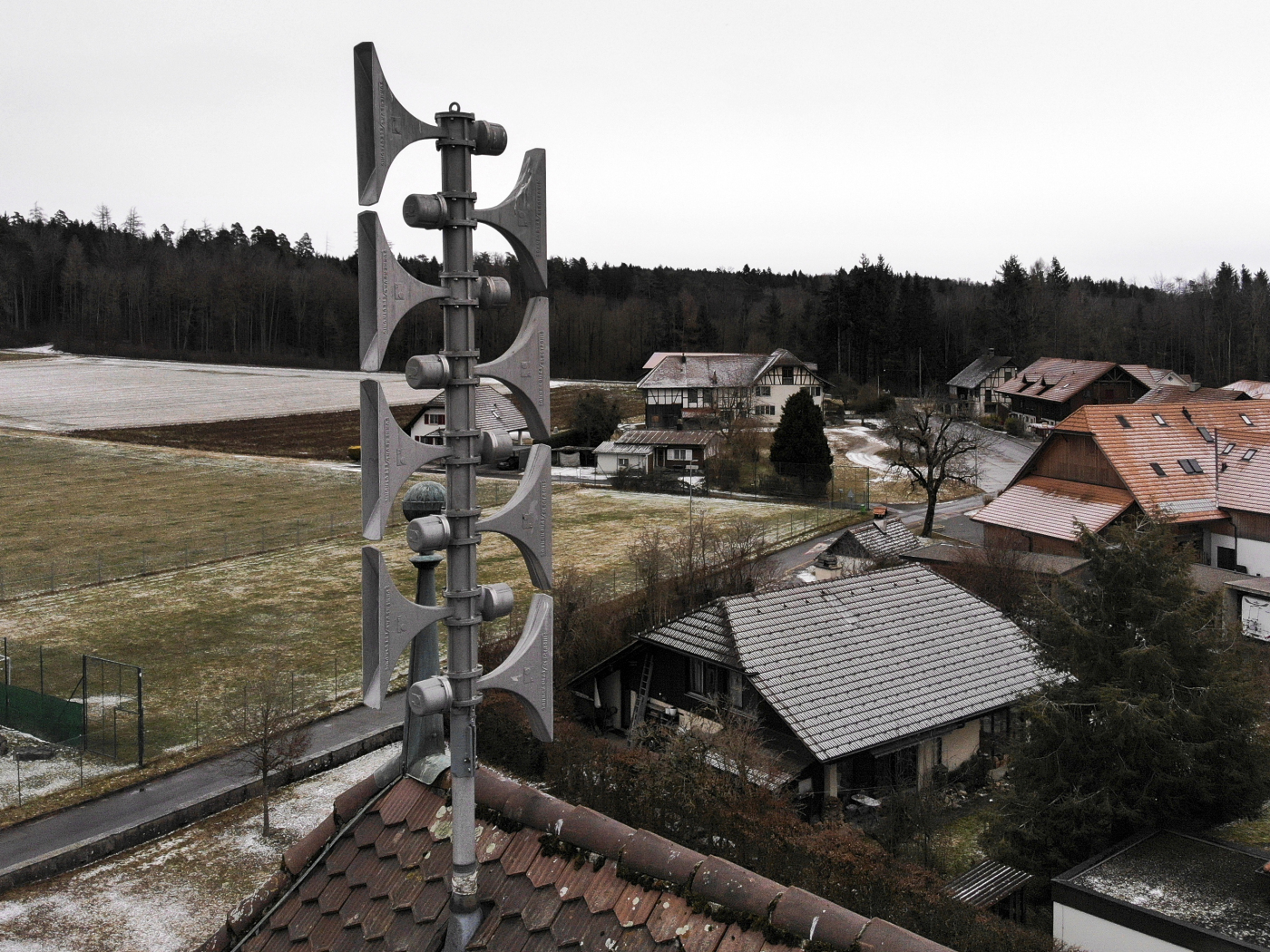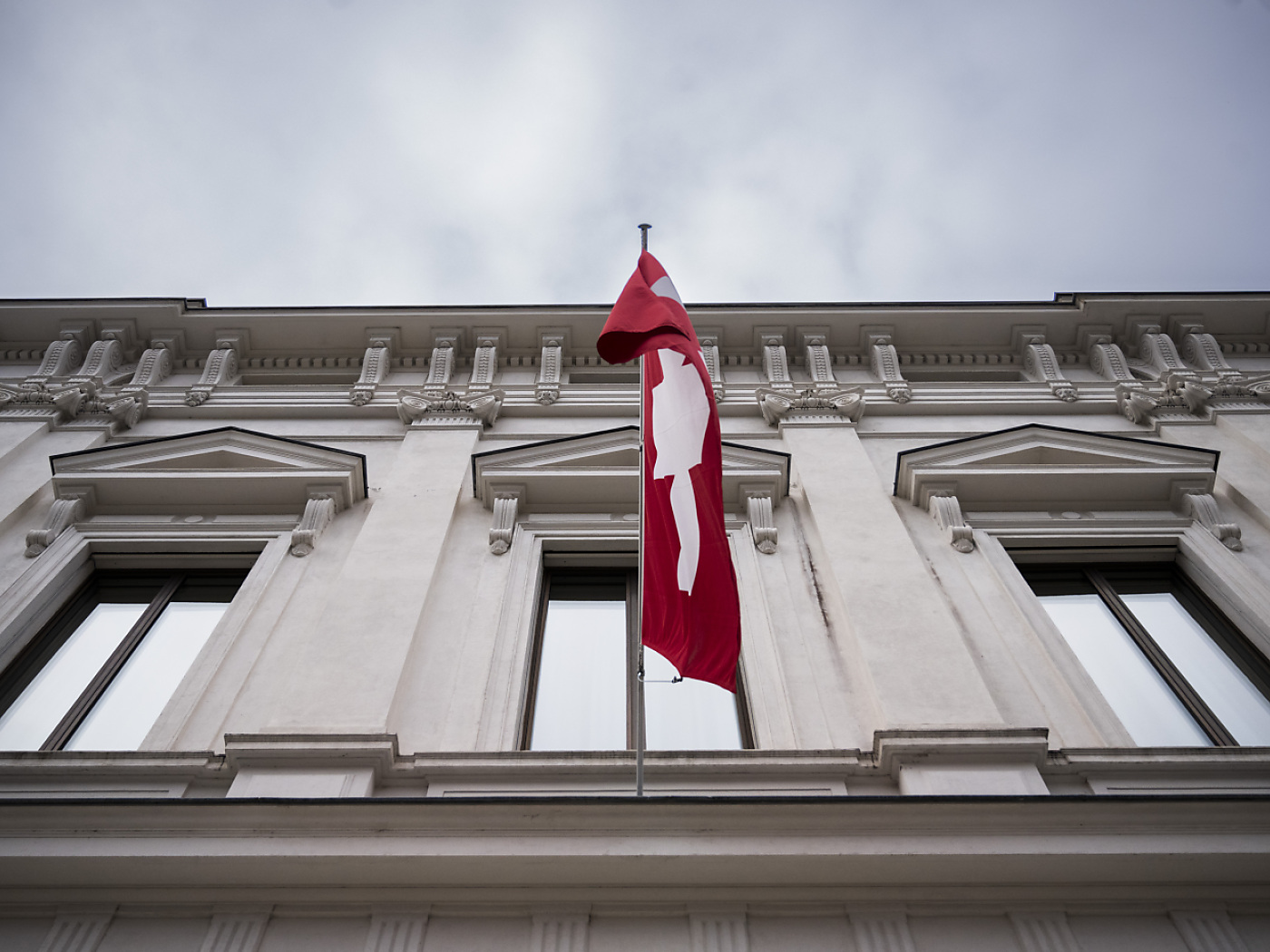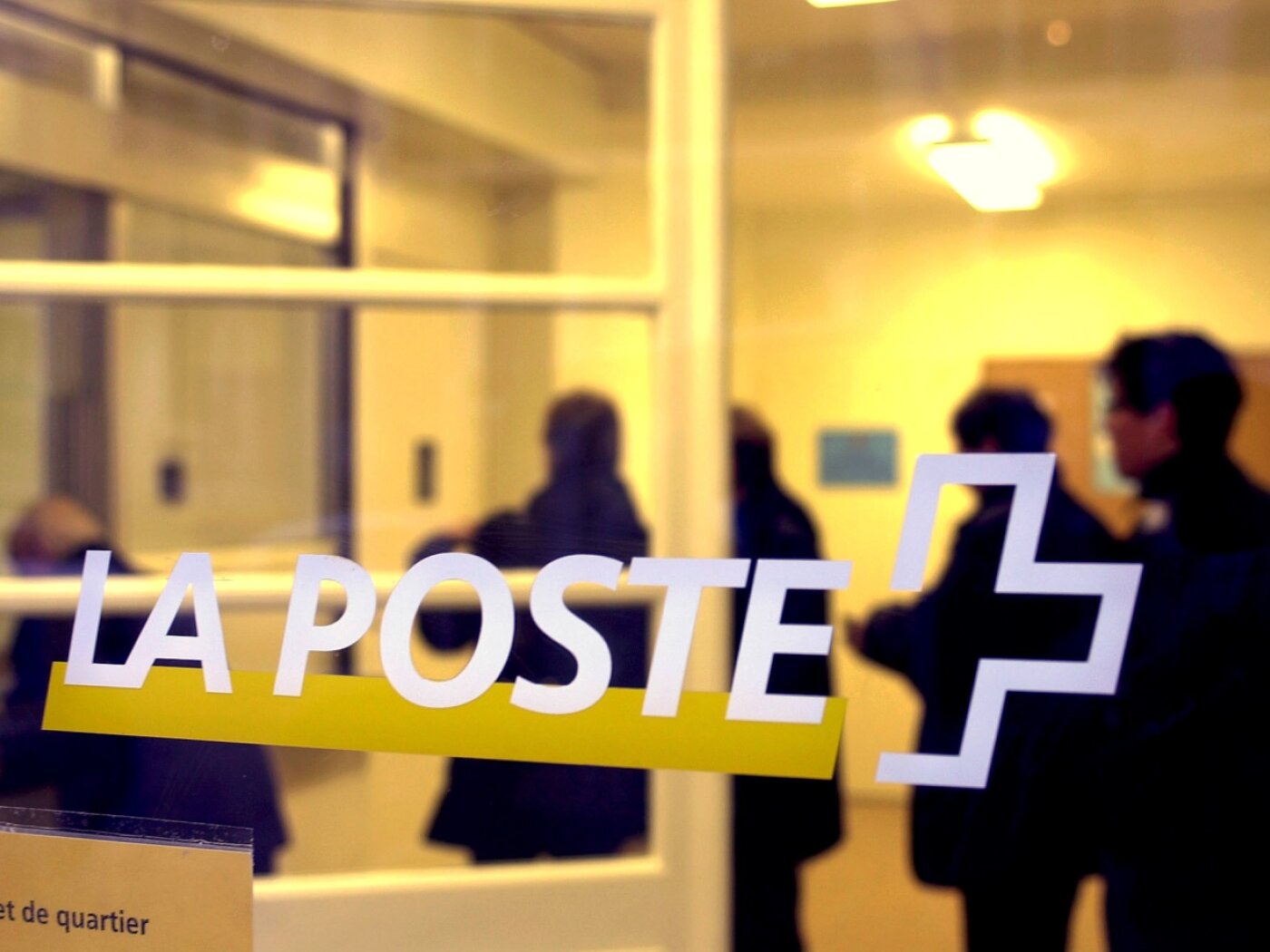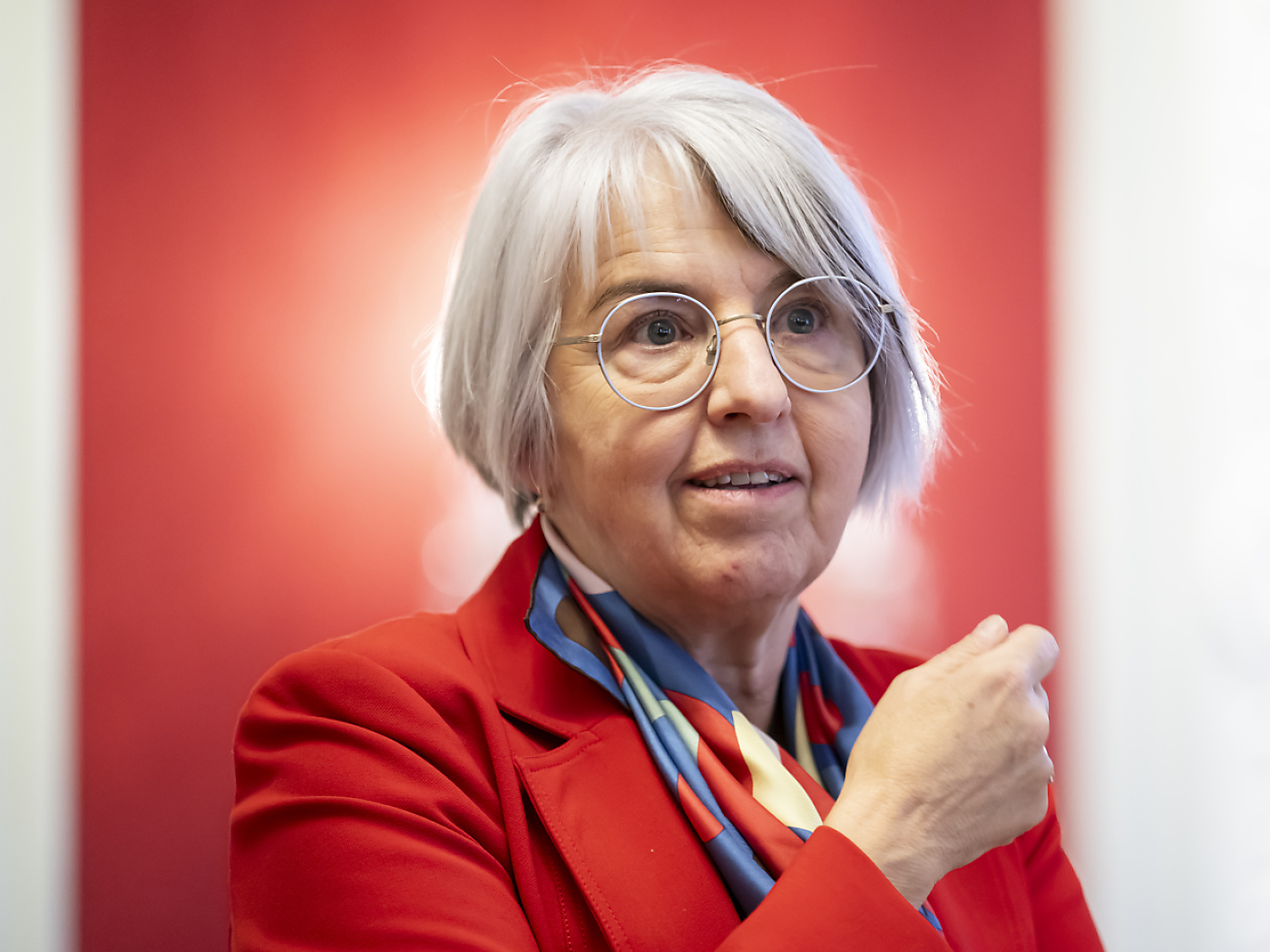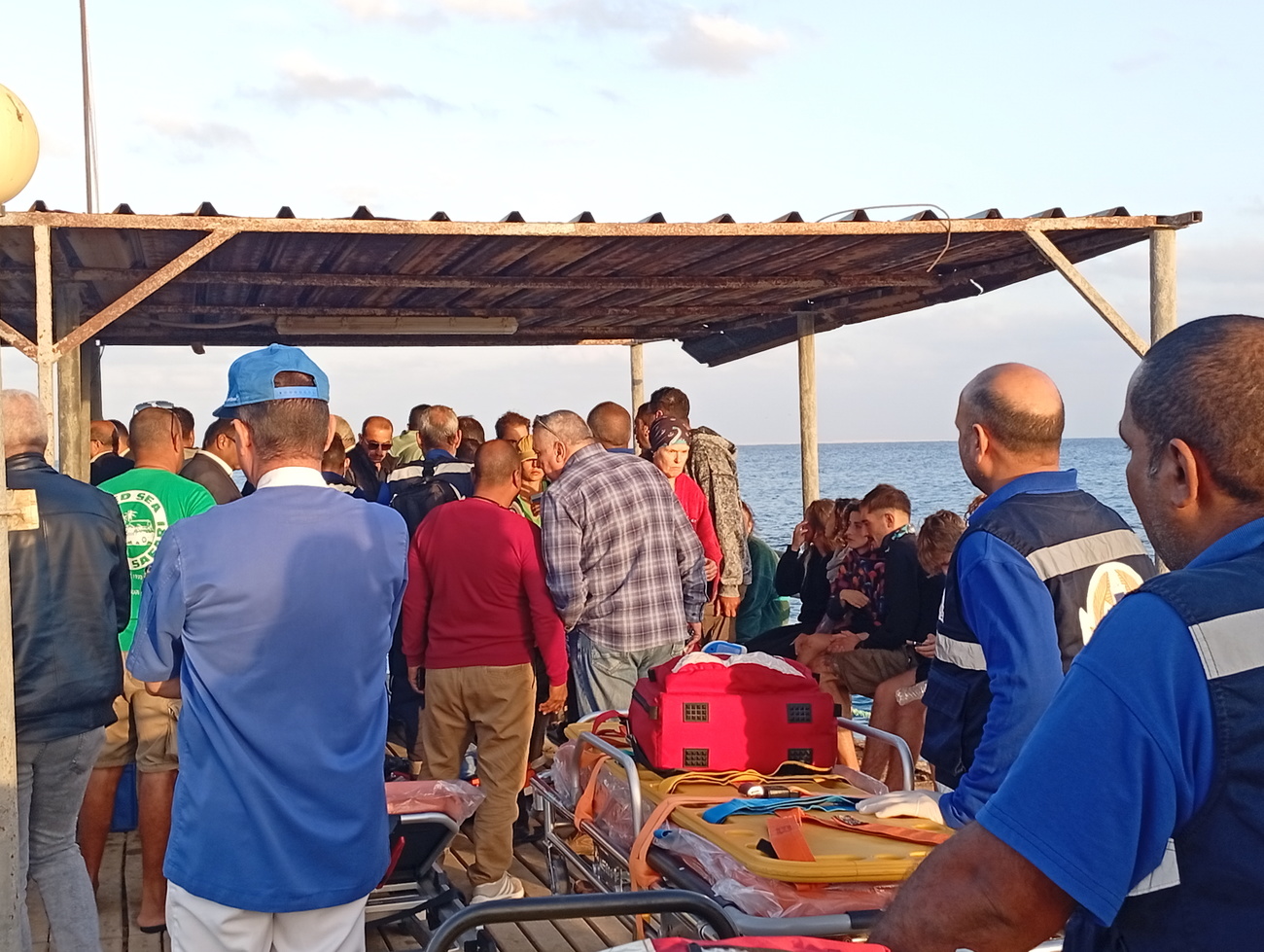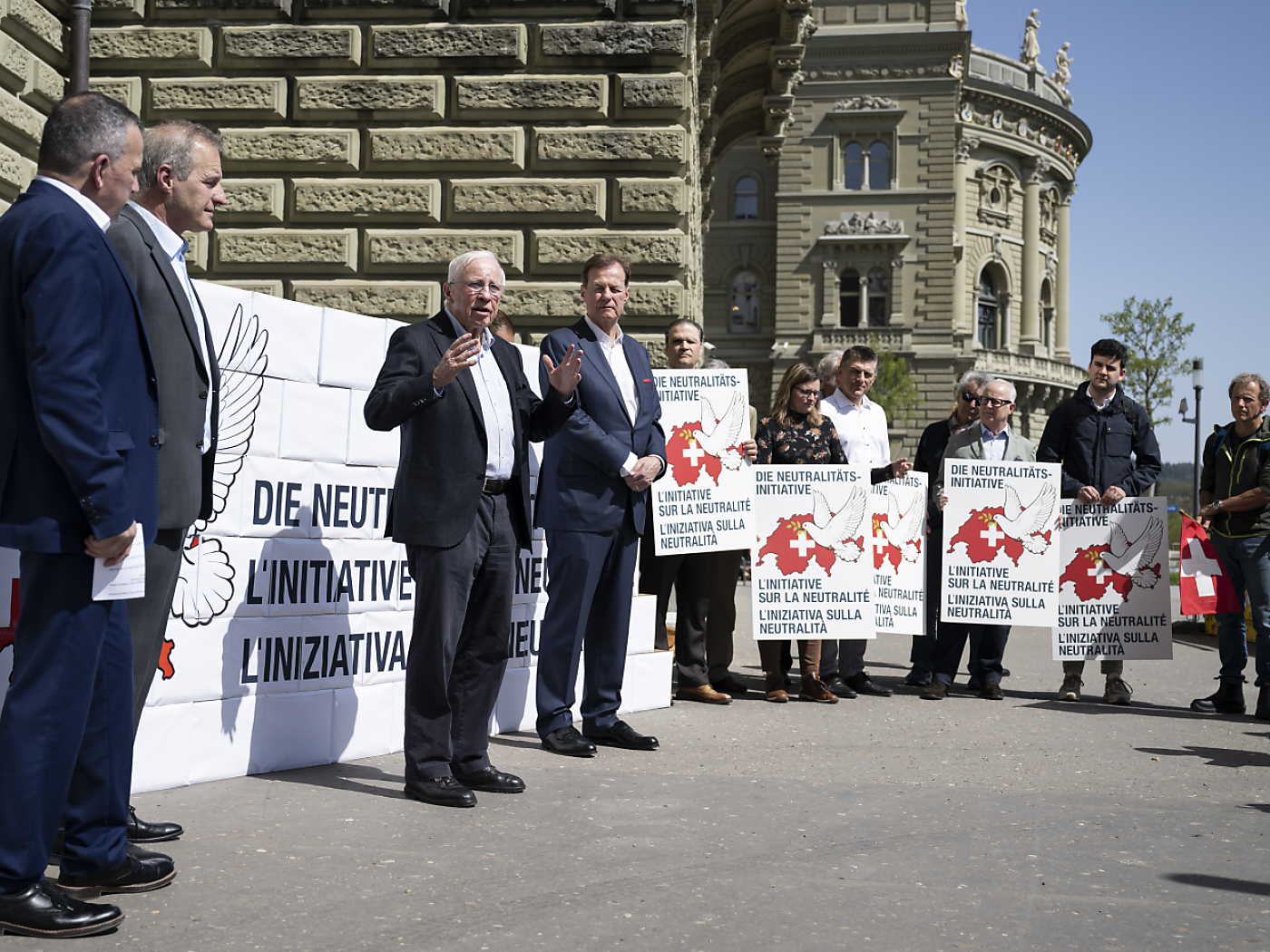
The “Safeguarding Swiss Neutrality” (neutrality initiative), launched by the Pro Switzerland group and right-wing supporters from the Swiss People’s Party, calls for perpetual and armed neutrality to be enshrined in the country’s constitution.
Keystone-SDA
It is not necessary to define Swiss neutrality more strictly, according to the Swiss government. The Federal Council has rejected the so-called “neutrality initiative” without proposing a counterproposal and has transmitted its message to parliament to debate the issue.
+Get the most important news from Switzerland in your inbox
The “Safeguarding Swiss Neutrality” (neutrality initiative), launched by the Pro Switzerland group and right-wing supporters from the Swiss People’s Party, calls for perpetual and armed neutrality to be enshrined in the country’s constitution. It also demands that Switzerland should not join any military or defence alliance. Cooperation with such organisations should be limited to cases where Switzerland is attacked.
The text also demands that Switzerland should not take part in foreign wars or impose economic or diplomatic sanctions against a belligerent state, subject to its obligations to the United Nations. Finally, Bern must make use of its neutral status in the context of its good offices.
‘Clear change of direction’
The Federal Council is convinced of the importance of neutrality for Switzerland. As part of the Swiss identity, it is an important instrument of Swiss foreign, security and economic policy, Foreign Minister Ignazio Cassis told reporters in Bern on Wednesday.
+ Swiss neutrality initiative submitted with almost 133,000 signatures
The minister pointed out that in many areas the initiative brings no change, citing the ban on joining military or defence alliances and the encouragement of good offices. But on other issues the text brings about a “clear change of direction”. Neutrality would become a rigid concept enshrined in the Federal Constitution, allowing no latitude. It would no longer be an instrument but an end in itself.
+ Dialogue: does Swiss neutrality have a future?
“The flexible use of neutrality has proved its worth,” Cassis declared. Abandoning this approach would limit the government’s room for manoeuvre, which is essential to safeguarding Switzerland’s interests, especially in today’s “changing world”, with its wars and crises.
Neutrality still recognised
If the initiative were accepted, Berne would no longer be able to impose sanctions on belligerent states outside the UN framework. The government believes that sanctions are an important means of responding to violations of international law. These measures aim to maintain a peaceful and equitable international order, it says.
In addition, the possibility of participating in cooperation projects in the field of security and defence policy would be severely restricted. This would weaken Switzerland’s defence capability.
+ Focus: how neutral really is Switzerland?
Cassis says it is not necessary to propose a counterproposal. In his view, Switzerland’s neutrality is still recognised internationally, even in the context of the war in Ukraine and the discussions surrounding the re-exporting of Swiss weapons.
Swiss citizens will probably vote on the text, unless the committee withdraws its initiative after discussions in parliament. This will be the first time that Cassis has faced a popular vote. He said he was “calm” and was looking forward to the debate with the population.
Failure of a first initiative
The campaigners have condemned the European Union’s use of sanctions against Russia as a “thoughtless sacrifice of credible neutrality”. They denounce a lack of direction and chaos in this area. They also oppose the “fallacious” rapprochement with NATO.
The Action for an Independent and Neutral Switzerland (ASIN), the predecessor of Pro Switzerland, launched an earlier initiative on neutrality in 2011. One of the aims of the initiative was to limit the army’s missions abroad to disaster relief. However, the organisation was unable to collect enough signatures.
Adapted from French by DeepL/sb
This news story has been written and carefully fact-checked by an external editorial team. At SWI swissinfo.ch we select the most relevant news for an international audience and use automatic translation tools such as DeepL to translate it into English. Providing you with automatically translated news gives us the time to write more in-depth articles.
If you want to know more about how we work, have a look here, if you want to learn more about how we use technology, click here, and if you have feedback on this news story please write to english@swissinfo.ch.


